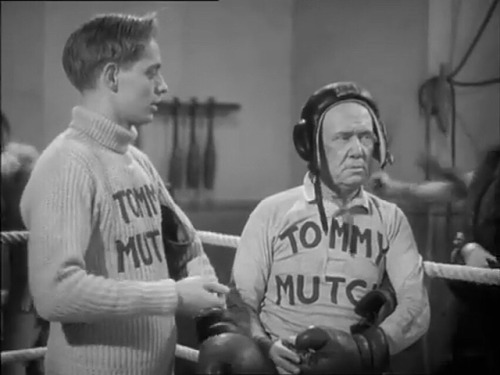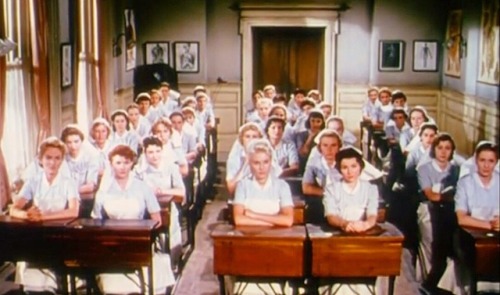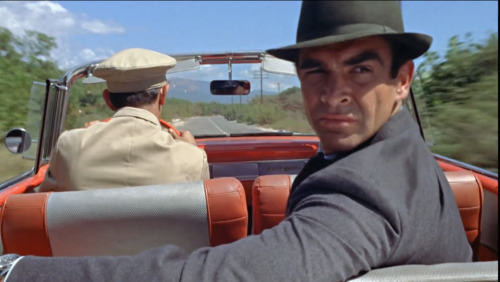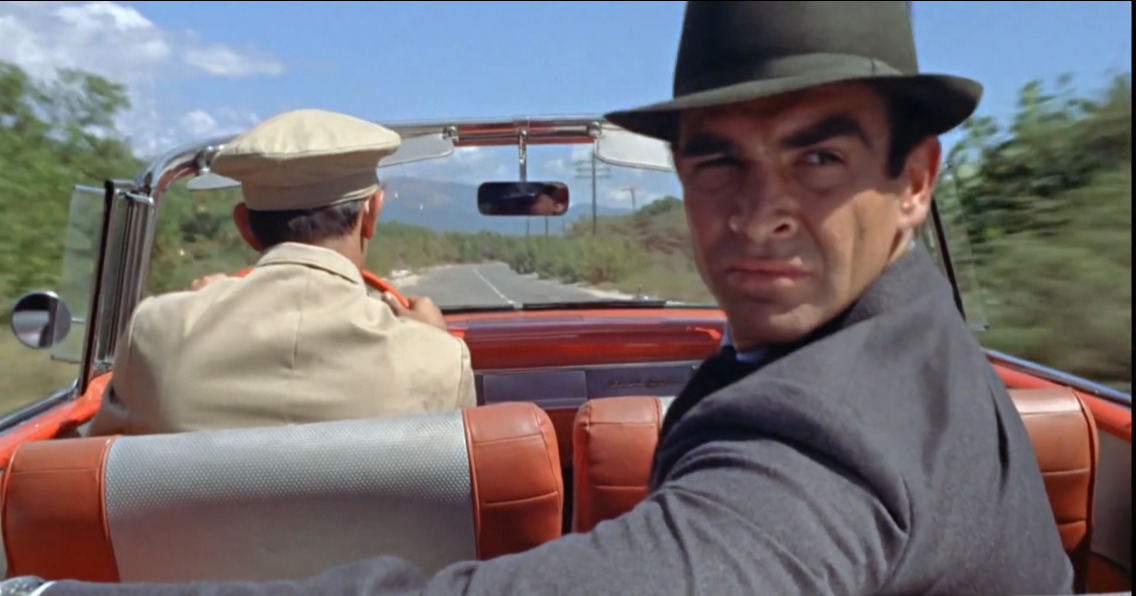
Slob with a blog. Vicariously join me on my movie viewing adventures! Visit my blog here: http://jinglebonesmovietime.blogspot.com
297 posts
TOY STORY 4 (Dir: Josh Cooley, 2019).

TOY STORY 4 (Dir: Josh Cooley, 2019).
Since the first movie was released in 1995, the Toy Story franchise has proven to be one of the most robust, not to mention most lucrative, Hollywood franchises of all time. The original film, a Pixar Animation Studios production released through Walt Disney Pictures, was a massive critical and commercial success, spawning a further two equally successful sequels. After the fairly definitive conclusion of Toy Story 3 (Lee Unkrich, 2010), the prospect of a fourth entry seemed to many unnecessary, albeit not entirely unwelcome.
Toy Story 4 reunites Woody, Buzz, Jessie and the gang and introduces new character Forky. Forky, made by the toys' new owner Bonnie from a plastic spork, pipe-cleaners and other discarded items, is determined to throw himself into the trash where he believes he belongs. Determined not to let this happen, Woody places himself in charge of the spork, a decision which results in the pair becoming separated from Bonnie and their pals. As lost toys they encounter the sinister doll Gabby Gabby and her ventriloquist dummy cohorts and Woody is reunited with old flame Bo Peep.
Happily Toy Story 4 is a sequel which lives up to its mighty predecessors. Director Josh Cooley and screenwriters Stephany Folsom and Andrew Stanton have created a movie that is by turns witty, exciting and ultimately moving. Its message is certainly as poignant as others in the franchise and comes with a climax that that seems pretty darn final.
It goes without saying that the computer generated animation in Disney/Pixar's Toy Story 4 is beautiful. Once again, the vocal performances, notably Tom Hanks as Woody, Tim Allen as Buzz, Annie Potts as Bo and Tony Hale as Forky, are exemplary.
This latest episode of the Toy Story saga thankfully does nothing to tarnish what is arguably the most consistent franchise of them all, while its finale suggests that this really will be the last we see of the gang. If this is the case then more's the pity, although Toy Story 4 definitely provides them with a high on which to go out on.
Read an unedited version of this review on my new blog: jinglebonesmovietime.blogspot.com
-
 infinityopossum liked this · 6 years ago
infinityopossum liked this · 6 years ago -
 ladylayton23 liked this · 6 years ago
ladylayton23 liked this · 6 years ago -
 fangirlspammer liked this · 6 years ago
fangirlspammer liked this · 6 years ago -
 weaverworks liked this · 6 years ago
weaverworks liked this · 6 years ago -
 crimson-mage-02 liked this · 6 years ago
crimson-mage-02 liked this · 6 years ago -
 askwenjing reblogged this · 6 years ago
askwenjing reblogged this · 6 years ago -
 askwenjing liked this · 6 years ago
askwenjing liked this · 6 years ago
More Posts from Jingle-bones

Movie number 64: There Ain’t No Justice (Pen Tennyson, 1939).
A lightweight drama from Ealing’s early years, There Ain’t No Justice stars Jimmy Hanley as mechanic turned boxer Tommy Mutch. After a promising start to his career Mutch quits fighting on learning his bouts are fixed. He later returns to the ring in order to pay a family debt but refuses to take a dive as demanded by a corrupt manager.
Hanley made a career from playing amiable types but is woefully miscast here. As a fighter he is unconvincing in both his physicality and his performance. This unfortunate casting is detrimental to an already dramatically weak picture. It is further hampered by the broad ‘cockerney geezer’ stereotypes of the supporting characters.
Directed by Alfred Hitchcock’s former Assistant Director Pen Tennyson, it is for the most part, not up to the standard of even Hitchcock’s weakest efforts. However, one scene depicting an attempted suicide displays a brilliant use of editing to create tension and is so good it feels like it belongs in a different film. This sequence alone makes the movie worth watching.
Tennyson directed two further, more distinguished movies: The Proud Valley (1940) and Convoy (1940), both at Ealing. He was tragically killed in a plane crash in 1941, ending a career which showed much early promise.
Released the same year as the pugilist classic Golden Boy (Rouben Mamoulian), There Ain’t No Justice is nowhere near as good a movie. Indeed, it’s not very good at all. It lacks the authenticity to appeal to boxing fans and the dramatic impetuous to appeal to movie fans. Worth a look for Ealing completists or for any admirers of Mr Hanley but markedly less rewarding for casual viewers.

My apologies for the hiatus in posting new reviews. I hope to be back on track tomorrow with brand new content! In the meantime check out all of my previous reviews in my new blog: JINGLE BONES MOVIE TIME! Link below.

Movie number 61: The Feminine Touch aka The Gentle Touch (Pat Jackson, 1956). A late period Ealing drama, variously retitled The Gentle Touch and A Lamp is Heavy in international markets; The Feminine Touch follows a group of student nurses as they embark on careers with the greatest of British post-war institutions, the NHS.
Unusually for an Ealing Studios production, the main protagonists are female. The narrative focuses largely on nurses Susan Richards (Belinda Lee) and Pat Martin (Delphi Lawrence) through initial training, exams and their inevitable romantic liaisons with doctors.
Told in the pseudo-documentary style often favoured by Ealing, the sense of realism is all slightly undone by the impossibly glamorous nurses who look every inch 1950s starlets and not hardworking medics.
Occasionally the movie threatens to deliver a worthwhile statement on gender inequality, such as addressing the injustice of female nurses having to quit their job when married. However, this important issue is undermined by the pat suggestion that by supporting their doctor husbands they will still be performing a valuable service to the medical profession!
While the idea of movie projecting a positive image of women in the workplace is to be applauded, its ultimate message seems to reinforce the notion that it is a man’s world and a woman’s place within it is to make her hubby happy. Such was the word in 1956. Indeed, even in a film about women top billing is given to man, co-star George Baker.
The Feminine Touch was to be director Pat Jackson’s only film for Ealing. This is probably no loss to Ealing. Where their earlier movies were often seen as promoting socialism and progressiveness, The Feminine Touch seems to be content with looking backwards rather than forwards. As entertainment it is pleasant enough, albeit slightly dull and hopelessly dated. As a tribute to NHS nurses it fails miserably a group of women who deserved so much more recognition than a middling, routine drama.

DR NO (Terance Young, 1962).
NOTE: The following is an edited version of a review available in full on my blog JINGLE BONES MOVIE TIME. Check it out! Link below.
The film that launched the longest running franchise in movie history. Sean Connery stars as Ian Fleming’s James Bond 007 in this adaptation of the sixth novel in the series.
Investigating the disappearance of fellow MI6 operatives, Bond heads to Jamaica and is soon on the trail of the titular Dr No, an underground dwelling, Nemo-esq scientific genius with plans to wreck the US space programme. Fist fights, shoot-outs and car chases ensue!
In many respects, Dr No is Bond in its purest form. Before the over reliance on gadgets, before the campy, double entendre laden humour, before the over the top action set pieces. Connery is perfect in the role: suave yet cool, a lover and a fighter. He is surrounded by a classy supporting cast. As Island girl Honey Ryder, Ursula Andress set the standard for Bond girls, emerging like Venus from the ocean in a two-piece swimsuit and creating one of the most iconic images of the entire series. Jack Lord and John Kitzmiller make appealing allies for Bond, while Bernard Lee and Lois Maxwell make their first appearances as Bond’s MI6 boss M and his flirtatious secretary Miss Moneypenny, respectively.
Director Terance Young never lets the pace flag. Dr No is one of the shorter Bonds but Young never wastes a second as he delivers a gripping, intelligent thriller.
Rewatching the movie almost 60 years after release it is fascinating to see how much of what we associate with the series is already present. Refinements were made to the formula over the coming films but I don’t think this series opener was ever bettered. Equalled maybe, but it has a certain economic, raw, unpolished appeal that box office success and bloated budgets would not allow for in the future. Six decades on this is still a fantastic piece of popular cinema. Intelligent in a way action movies rarely are today, shot through with streak of sardonic humour. If you are only familiar with later entries than this original classic should really be next on your Bond viewing list!
100+ movie reviews now available on my blog JINGLE BONES MOVIE TIME. Link below.


POKÉMON: DETECTIVE PIKACHU (Dir: Rob Letterman, 2019).
Part of the phenomenally successful Pokémon franchise, Detective Pikachu is the first movie in the series to combine live-action with CGI Pokémon. The somewhat convoluted plot finds insurance salesman and former Pokémon trainer wannabe Tim Goodman (Justice Smith) teaming up with Pikachu (voiced by Ryan Reynolds) to investigating the mysterious death of Tim’s detective father. Tim is the only human who can understand the amnesia suffering Pikachu who has some previous link with the detective.
Visually Detective Pikachu is a highly satisfying film, narratively it is less so. The CGI Pokémon are beautifully realised creatures that integrate believably with the humans and real life surrounds; thankfully there are a wealth of these fabulous beings on display. Main man Pikachu has the requisite level of cuteness while Mr Mime makes a very effective and amusing cameo as a police informant; an encounter with oversized Torterra is visually stunning, as is the climatic battle with it Avengers-level of structural decimation! The film noir-like cityscapes that form the story’s backdrop are also highly impressive.
Where the movie falters is in its narrative which somehow manages to be both predictable and confusing. With a tidier and tighter script Detective Pikachu might have been a modern day Who Framed Roger Rabbit (Robert Zemeckis, 1988); a family friendly infusion of 40’s film noir detective thriller and 2019 high-tech blockbuster. Dedicated Pokémon fans will probably be more forgiving of Detective Pikachu’s short comings. For casual fans and those less familiar with the franchise, it should prove to be a bewildering yet entertaining 105 minutes. For its amazing eye candy alone Pokémon: Detective Pikachu is well worth catching.
Visit my blog JINGLE BONES MOVIE TIME for more movie reviews! Link below.